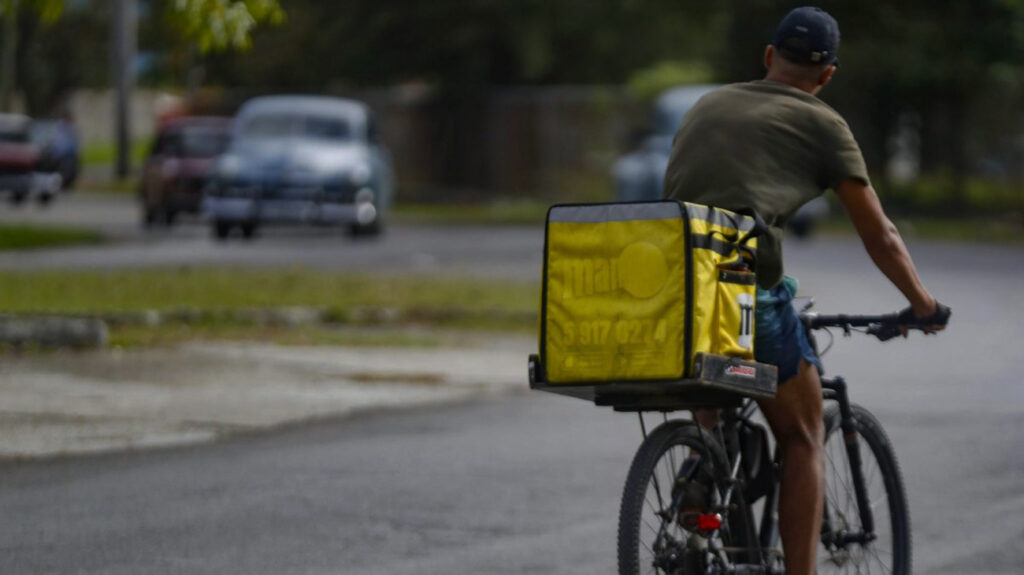Hundreds of thousands of private-sector workers in Cuba are experiencing the system’s shortcomings

EFE (via 14ymedio), Juan Carlos Espinosa, Havana, 9 June 2024 — Thirty-five-year-old Jorge takes his cell phone out of a yellow thermal backpack and pulls up an order he is delivering on his bicycle.
He is one of hundreds of thousands of “cuentapropistas” (independent contractors) who have emerged since self-employment was legalized fifteen years ago. His particular type of employment would not have been possible without the introduction of cell phones in 2018 or the legalization of small privately owned businesses (MSMEs*) in 2021.
These changes to the system, however, are not without their shortcomings. On paper, Jorge is free to take on multiple gigs or use his time as he sees fit. In practice, however, he works as an employee but without some of the benefits of being on the company’s payroll.
“It seems we in Cuba only import the bad stuff,” he complains.
The advent of this type of business in Cuba has brought with it the same problems that have vexed capitalist governments and labor unions
Jorge (a pseudonym) works for Mandao, a food delivery app similar to Glovo or Uber Eats. Of the 11,000 legally licensed MSMEs in Cuba, it is one of the most popular.
Nevertheless, the advent of this type of business in Cuba has brought with it the same problems that have vexed governments and labor unions in capitalist countries.
After being shown contracts the company has with three individuals, two experts both agreed that the workers — commonly known in Cuba as “riders” — are not actually independent contractors but rather salaried employees.
They had differing opinions, however, on just how illegal this might be. The practice is, in any case, problematic.
For example, in two of the three contracts, the company retains 10% of each delivery fee, charges the courier 100


